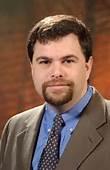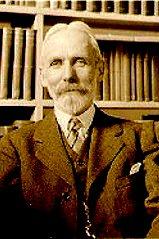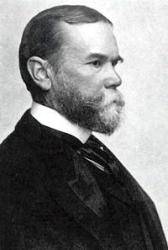Planning worship?
Check out our sister site, ZeteoSearch.org,
for 20+ additional resources related to your search.
- |
User Links
Person Results
Joseph of the Studium
762 - 832 Person Name: Joseph of the Studium, 800-883 Author of "O happy band of pilgrims" in Hymnal and Liturgies of the Moravian Church Joseph of the Studium [Joseph of Thessalonica]. This person not the same person wrongly named by Dr. Neale in his Hymns of the Eastern Church as Joseph of the Studium, author of the great Canon for the Ascension. That Joseph is St. Joseph the Hymnographer. Joseph of Thessalonica, younger brother of St. Theodore of the Studium, q.v., was some time Bishop of Thessalonica, and died in prison, after great suffering inflicted by command of Theophilus. He was probably the author of the Triodia in the Triodion, and certainly of five Canons in the Pentecostarion to which his name is prefixed. His pieces have not been translated into English. [Rev. H. Leigh Bennett, M.A.]
--John Julian, Dictionary of Hymnology (1907)
Joseph of the Studium
S. Ralph Harlow

1885 - 1972 Author of "O young and fearless Prophet" in The Mennonite Hymnal Born: July 20, 1885, Boston, Massachusetts.
Died: August 21, 1972, Northampton, Massachusetts.
Buried: Abels Hill Cemetery (also known as Chilmark Cemetery), Martha’s Vineyard, Massachusetts.
Harlow attended Harvard University, Union Theological Seminary, Columbia University, & Hartford Theological Seminary. Ordained a Congregational minister in 1912, he was a chaplain and sociology teacher at the International College in Smyrna, Turkey (1912-22). When World War I broke out, he served as YMCA director for the American forces in France. In 1923, he joined Smith College, Northampton, Massachusetts, serving over 30 years as a professor of religion and social ethics. He traveled overseas as a lecturer for the Carnegie Endowment for International Peace, and was a visiting professor at Pierce College in Athens, Greece (1945-46).
--www.hymntime.com/tch
S. Ralph Harlow
Thomas Curtis Clark
1877 - 1953 Person Name: Thomas C. Clark, 1877-1953 Author of "Where Restless Crowds Are Thronging" in Lutheran Book of Worship Thomas Curtis Clark (born on January 8, 1877) author of over sixty hymns, studied at University of Chicago in Chicago, Illinois 1901-02 and served on the editorial staff of the Christian Century in Chicago, Illinois 1912-48. Won first prize in the 1943 Hymn Society of America nation-wide contest with his "Thou Father of Us All."
--legacy.lincolnchristian.edu/library/
===============================
Ammanford, Carmarthenshire, England
--Five New Hymns on the City , 1954. Used by permission.
Thomas Curtis Clark
Richard Leach
b. 1953 Person Name: Richard D. Leach Author of "An Outcast among Outcasts" in Sing the Faith
Richard Leach
Peter Blood
b. 1946 Person Name: P. Blood-Patterson Adapter of "O God of Earth and Altar" in Worship in Song
Peter Blood
David Gambrell

Author of "The Days Are Surely Coming" in Glory to God Rev. David Gambrell is associate for worship in the PC(USA) Office of Theology
and Worship and editor of Call to Worship, and an ex officio advisor to the hymnal committee.
Education: Ph.D., liturgical studies
Garrett-Evangelical Theological Seminary
Austin Presbyterian Theological Seminary
--www.presbyterianmission.org/ministries
David Gambrell
Henry Hallam Tweedy

1868 - 1953 Person Name: Henry H. Tweedy Author of "O Spirit of the Living God" in Baptist Hymnal (1975 ed) Born: August 5, 1868, Binghamton, New York.
Died: April 11, 1953, Brattleboro, Vermont.
Buried: Mountain View Cemetery, New Fairfield, Connecticut.
Tweedy attended Phillips Andover Academy, Yale University (BA & MA), Union Theological Seminary, and the University of Berlin. Ordained a Congregationalist minister in 1898, he pastored at Plymouth Church, Utica, New York (1892-1902), and South Church, Bridgeport, Connecticut (1902-09). He then became Professor of Homiletics at Yale Divinity School (1909-37). He taught liturgy, music, and the arts, and was interested in religious architecture. His works include:
The Minister and His Hymnal
Christian Worship and Praise, 1939
Lyrics:
"Eternal God, Whose Power Upholds"
"O Gracious Father of Mankind"
"O Spirit of the Living God"
--www.hymntime.com/tch
Henry Hallam Tweedy
John Hay

1838 - 1905 Author of "Not in Dumb Resignation" in The Cyber Hymnal Hay, John, diplomat and author, born at Salem, Ind., Oct. 8, 1838; graduated at Brown University 1858; admitted to the 111. Bar; was private secretary to Pres. Lincoln; served in the Civil War; member of the Legation at Paris, Madrid, and Vienna, and Ambassador at the Court of St. James. In 1879-81 he was First Assistant Sec. of State, and from 1898 Sec. of State in the Cabinets of Presidents McKinley and Roosevelt, to his death July 1, 1905. His publications included Castilian Days, 1871; and, with J. G. Nicolay, Abraham Lincoln: A History, 10 vols., 1887, &c. In 1871 he also published Pike County Ballads, and in 1890 Poems. Of his poems the following are in common use as hymns:—
1. From Sinai's cloud of darkness. [Law and the Gospel.] This begins with st. ii. of his poem, “Sinai and Calvary," in Poems, 1890, p. 152. Asked for its date and origin, Mr. Hay said: "I wrote the hymn several years ago, because I felt like it. I can say nothing more intelligible than that." It was included iu the New Laudes Domini, N.Y., 1892.
2. Lord, from far-severed climes we come. [Work on for God.] In the summer of 1895, at his summer home at Lake Sunapee, Mr. Hay was asked to write a hymn for the opening of the 15th International Christian Endeavour Convention, at Washington, the following year, but declined on the ground that his verse-writing days were past. But in the following spring he sent this hymn, with the statement that there was no obligation to use it. In his manuscript it is entitled "An Invocation." It was sung at the opening of the Convention of 1896, and again at the Convention on July 4, 1905, when the opening exercises assumed the form of a memorial service, as his body was being borne to the grave. It is in several American collections. In The Methodist Hymnal, N.Y., 1905, it opens with st. ii., “Defend us, Lord, from every ill." The original is in 4 stanzas of 4 lines.
3. Not in dumb resignation. [Submission.] Appeared in 3 stanzas of 8 lines in Harper's New Monthly Magazine, Oct. 1891, and entitled "Thy will be done." Given with alterations in Dr. L. Abbott's Plymouth Hymnal, N.Y., 1894.
Mr. Hay was for some time an office-bearer in the Presbyterian Church of the Covenant, Washington, D.C. [Rev. L. F. Benson, D.D.]
--John Julian, Dictionary of Hymnology, New Supplement (1907)
John Hay


 My Starred Hymns
My Starred Hymns


